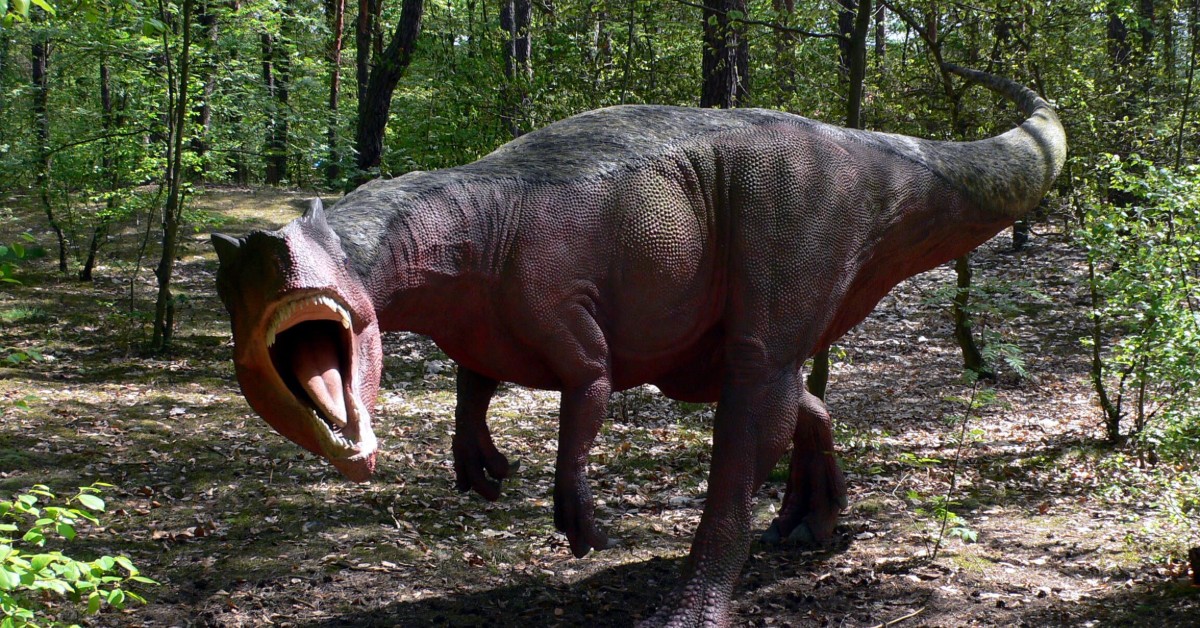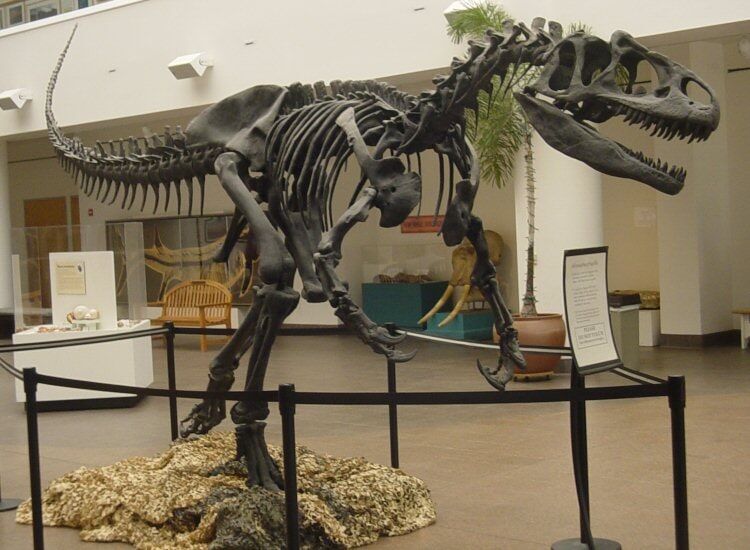
Allosaurus means different looking lizard. Its discoverer O.C. Marsh gave it this name because the vertebral bones looked different from those he had known before.
Allosaurus was a carnivore that moved on two powerful hind legs. Its arms were short and strong and ended in three powerful claws. The front arms were not long enough to reach the mouth. In any case, they were not suitable for food intake.
| Profile | Allosaurus |
|---|---|
| Prehistoric Era | Upper Jurassic (157 to 152 million years ago) |
| Order | Saurischia |
| Suborder | Theropoda |
| Family | Carnosauria |
| Tribe | Allosauridae |
| Genus | Allosaurus |
| Species | Allosaurus fragilis Marsh, 1877 Allosaurus europaeus Mateus, 2006 Allosaurus lucasi Dalman, 2014 Allosaurus maximus/Saurophaganax maximus Chure, 1995 Allosaurus? tendagurensis Janensch, 1925 Allosaurus jimmadseni Chure & Loewen, 2020 |
| Height | 2.5 - 3.5 meter |
| Length | 10 - 12 meter |
| Weight | 4 tons |
| Territory | North America and Southern Europe, Australia |
T-Rex and Allosaurus were very similar in shape and size. However, they differ significantly in feeding behavior, as studies have now revealed (Eric Snively and colleagues; from Ohio University in Athens). While T-Rex tore out flesh after biting its victim by shaking its head violently, much like crocodiles do, Allosaurus behaved completely differently.
Allosaurus, on the other hand, drove its upper jaw deep into the flesh of its victim; similar to today's griffins, and by pulling forcefully backward, tore out flesh. However, since his skull was much lighter compared to T-Rex, this technique required him to use his entire body. The strength of the neck muscles would probably not have been sufficient for this technique.
He possessed saw-shaped serrated teeth, which grew up to 10 cm long. In the upper jaw 40 and in the lower jaw 32 teeth could be proved.

Allosaurus lived in open, dry areas crossed by rivers. It hunted mainly smaller dinosaur species such as Coelurus, Ornitholestes and Diplodocus.
However, fossil finds of Stegosaurus have shown that it also ventured after larger prey.
Based on fossilized footprints, it is assumed that Allosaurus' preferred hunting grounds were waterholes where it lay in wait for its prey.

Image sources:
(Cover image): This photo was taken by Przemysław JahrAutorem zdjęcia jest Przemysław JahrWykorzystując zdjęcie proszę podać jako autora:Przemysław Jahr / Wikimedia Commons, Public domain, via Wikimedia Commons
No machine-readable author provided. Sheep81~commonswiki assumed (based on copyright claims)., Public domain, via Wikimedia Commons